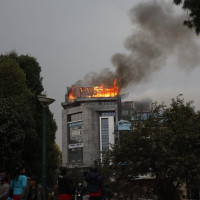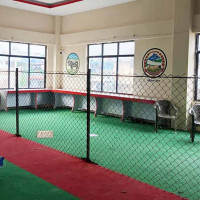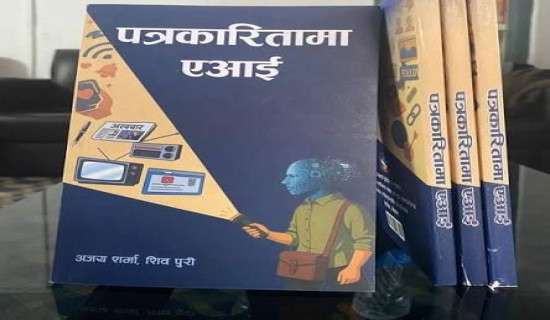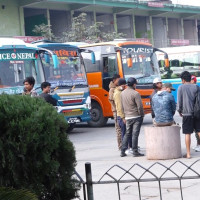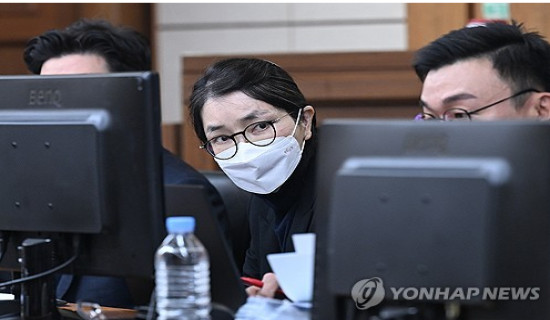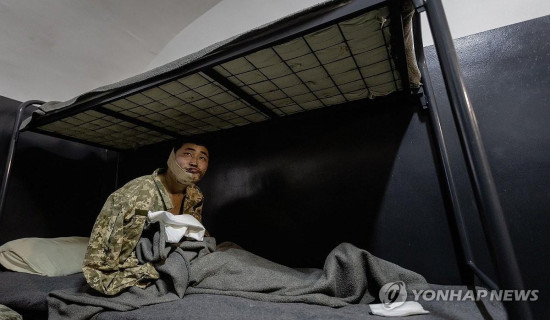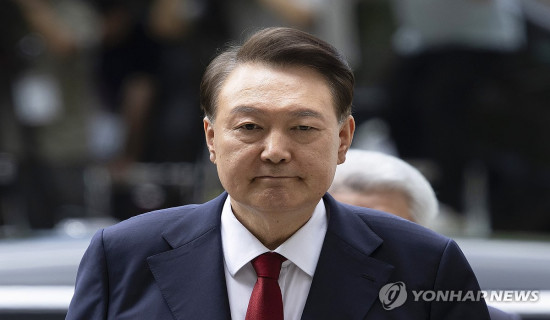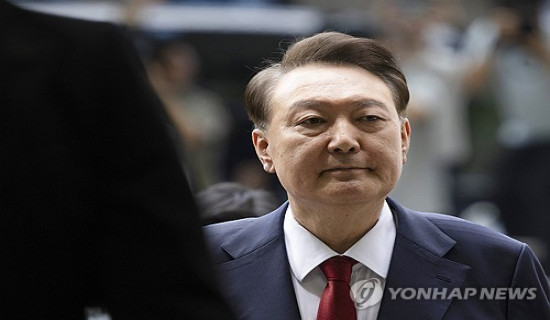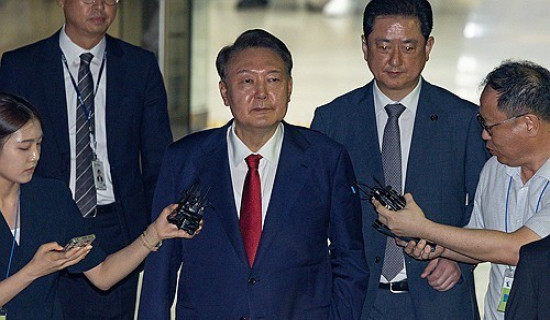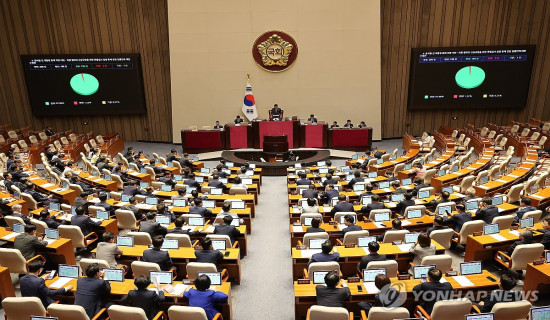- Tuesday, 3 March 2026
South Korean Constitutional Court upholds President's impeachment, removes him from office
By Lee Haye-ah, April 4: SEOUL, April 4: The Constitutional Court unanimously upheld the impeachment of President Yoon Suk Yeol on Friday, removing him from office over his short-lived imposition of martial law in December.
The verdict, which was read by acting court chief Moon Hyung-bae and televised live, took effect immediately, requiring the country to hold a snap presidential election to pick Yoon's successor within 60 days, which many expect to fall on June 3.
Yoon was impeached by the opposition-controlled National Assembly in mid-December on charges of violating the Constitution and laws by declaring martial law on Dec. 3, deploying troops to the National Assembly to stop lawmakers from voting down the decree and ordering the arrest of politicians.
"The negative effects on the constitutional order and the repercussions from the defendant's violations of the law are grave, making the benefits of protecting the Constitution by dismissing the defendant overwhelmingly larger than the national losses from dismissing the president," Moon said.
The ruling capped a four-month-long saga that began with Yoon's surprise declaration of martial law and saw his arrest and subsequent release while causing considerable damage to the country's political, economic and social fabric.
In a statement released by his legal team, Yoon apologized to the people for failing to live up to their expectations and thanked them for their support.
"My beloved people, it was a great honour to be able to work for the Republic of Korea," he said. "I will always pray for my beloved Republic of Korea and all of you."
The case centred on whether he broke the law by engaging in five key actions: declaring martial law, writing up a martial law decree, deploying troops to the National Assembly, raiding the National Election Commission and attempting to arrest politicians.
The court recognized all of the charges, including that he did not meet the legal requirements for declaring martial law. Under the Constitution, a president can declare martial law during war or in an equivalent national emergency.
Yoon justified his action by accusing the main opposition party of paralyzing state affairs with its repeated impeachments of officials of his administration and attempt to cut the state budget.
The court rejected his argument.
"By damaging the authority of a constitutional institution and violating the people's basic human rights through the mobilization of troops and the police, he neglected his duty to protect the Constitution," Moon said.
"The defendant's actions in violation of the Constitution and laws are a betrayal of the people's trust, and from the perspective of protecting the Constitution, a grave violation of the law that cannot be tolerated," he added.
The consent of at least six justices was required to uphold the impeachment motion, with eight justices currently on the bench.
The key was not only whether Yoon violated the law but also whether the violation was serious enough to warrant his dismissal.
Yoon did not appear at the court for his verdict.
In an address to the nation, acting President and Prime Minister Han Duck-soo vowed to do his best to manage the upcoming election to ensure a smooth transition to the next administration.
The ruling People Power Party said it "humbly accepts" the court's ruling, while the main opposition Democratic Party (DP) welcomed it as a "people's victory."
DP leader Lee Jae-myung, widely considered the front-runner in the next presidential election, read a separate statement from the National Assembly.
"The great people recovered the great democratic republic, the Republic of Korea," he said. "Together with the people, we will restore the destroyed people's livelihoods, peace, economy and democracy with a spirit of grand unity."
According to a Gallup Korea poll conducted on 1,001 adults from Tuesday to Thursday, 52 percent were in favor of an opposition candidate winning the next election, while 37 percent supported a ruling party candidate.
As the next president, Lee had the most support at 34 per cent, followed by Labor Minister Kim Moon-soo of the ruling bloc at 9 percent. The poll had a margin of error of 3.1 percentage points at a 95 per cent confidence level.
The verdict drew sharply different reactions from Yoon's supporters and opponents.
Outside the official presidential residence in central Seoul, anti-Yoon protesters shouted and burst into tears as some held up large national flags and waved signs reading, "Dismiss Yoon Suk Yeol."
Just meters away, a group of Yoon's supporters expressed disbelief. Some flew into a rage shouting expletives while others fell to the ground and cried loudly.
Thirty-eight days was the longest the court took to deliver its ruling on a president's impeachment following the final hearing.
In the past cases of former Presidents Roh Moo-hyun and Park Geun-hye, it took the court 14 days and 11 days, respectively.
From the day the impeachment motion against Yoon was submitted to the court on Dec. 14, it took 111 days.
In addition to the impeachment trial, Yoon has been standing criminal trial on charges of inciting an insurrection through his martial law bid, a crime that carries a maximum penalty of life in prison or death.
He was detained over the charges in January and held at a detention center until early March, when he was released following a court ruling that his detention was invalid, a decision that allowed him to stand trial without physical detention.

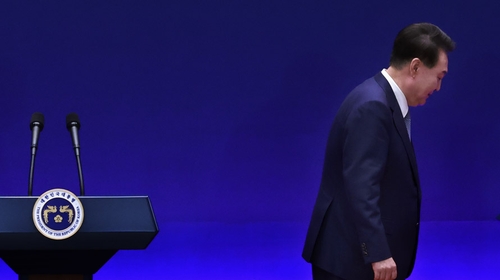

-original-thumb.jpg)
